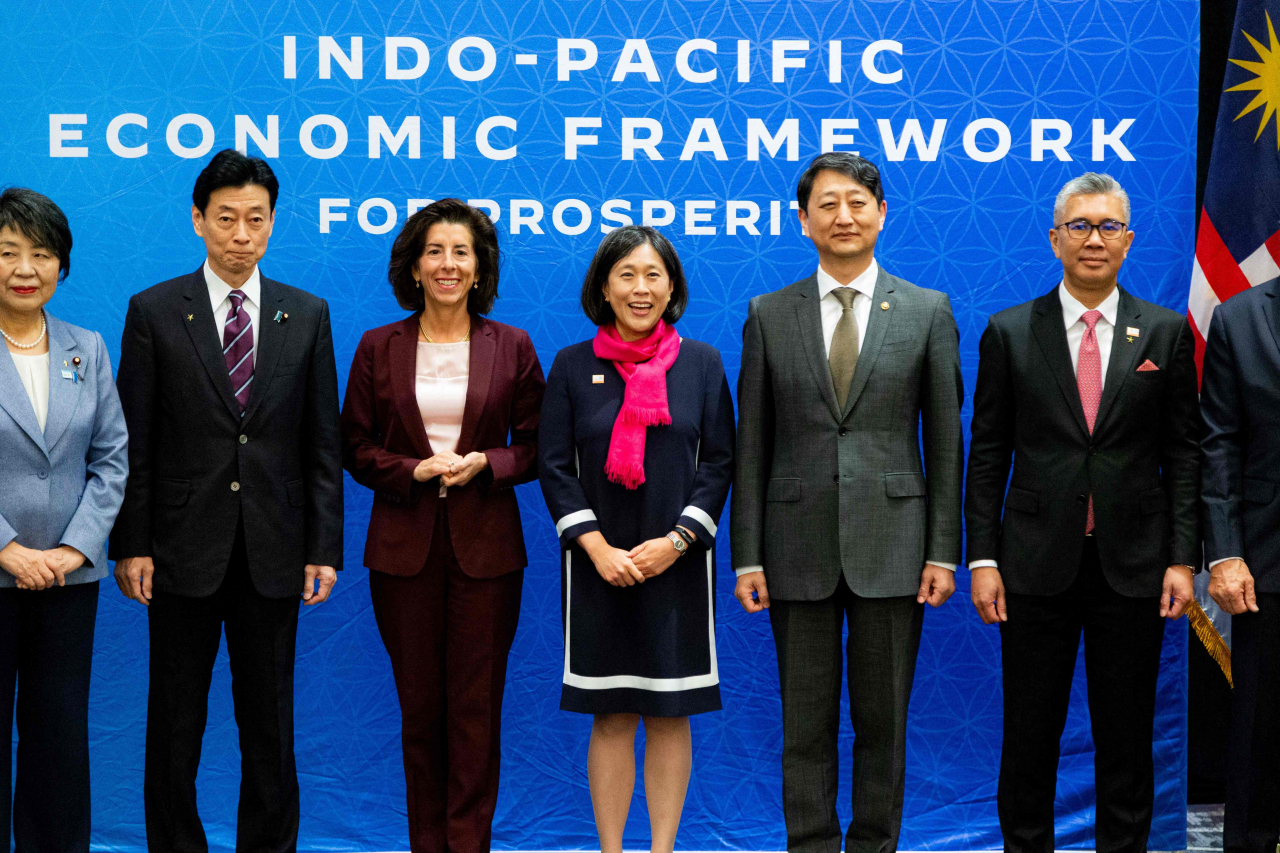Negotiating members of Indo-Pacific trade talks reach consensus on energy, fair economy
By YonhapPublished : Nov. 16, 2023 - 21:44

South Korea and other negotiating members of the United States-led Indo-Pacific Economic Framework (IPEF) have reached a consensus on two additional sectors of the agreement, energy and fair economy, Seoul's trade ministry said Thursday.
The IPEF was launched by US President Joe Biden in 2022 in a move to counter China's growing influence in the region, which involves a total of 14 member nations, including South Korea, Australia, India, Japan, Singapore, Thailand and Vietnam.
Among the initiative's four sectors, the agreement on the supply chain resilience pillar was reached in May.
The clean energy pillar is anticipated to pave the way for participating nations to enhance collaboration in the pursuit of sustainable energy sources and reducing gas emissions.
The fair economy segment focuses on strengthening protection for whistleblowers against corruption and taking punitive actions against illegal activities in government procurement.
Members now have only the trade pillar remaining in the IPEF negotiations and have agreed to continue talks on the segment next year, according to the Ministry of Trade, Industry and Energy.
"Currently, we have made significant progress in detailed sectors of the trade pillar through a series of negotiations," the ministry said in a statement. "However, there was consensus among the participants that additional talks are needed."
The IPEF members represent around 40 percent of global gross domestic product, and 28 percent of global goods and services trade, according to government data. (Yonhap)



















![[Today’s K-pop] Treasure to publish magazine for debut anniversary](http://res.heraldm.com/phpwas/restmb_idxmake.php?idx=642&simg=/content/image/2024/07/26/20240726050551_0.jpg&u=)